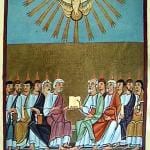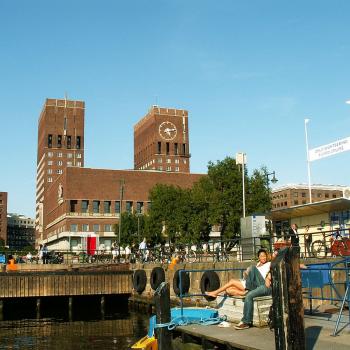This is worth quoting at length, because Troutner’s conclusion expresses the ambiguities found in the Integralist movement. We know it is interested in subordinating the temporal world to the spiritual one, such that governments can actually pursue definite ends, rather than mask themselves as procedural arenas with well-defined rules in which ends are generally irrelevant. If Liberalism is all about the rules of the game (laws, consensus, elections), then Integralism is about winning, regardless of the rules. It’s hard to say much else about what that means practically: would burning heretics be okay? Forced conversion? Would freedom of speech even continue to exist? What about freedom of the press?
Integralists themselves disagree in their answers. Some have said burning heretics would be absolutely fine, because they represent a threat to the common good of salvation. Some have defended the actions of Pius IX in the Mortara Affair. Of course, these offend our Liberal sensibilities and so others have been more timid. Most recognize that we cannot simply go back. We have to imagine some post-Liberal Integralism. But how different would that look from its older version? I’m not sure I’ve yet heard a convincing answer.
Troutner says that Integralism refuses the radical nature of Christ’s death and resurrection, refusing the ways of this world. By using temporal means so liberally, they misapprehend the central point of the Christian revelation. Regardless, what matters here is what Troutner offers as a competing future, the one he supports:
Integralism’s failure cannot be allowed to obscure the fact that the liberal state and the capitalist market are hopelessly incompatible with any genuinely political life, let alone faithful Catholic politics. We must begin not with grandiose integralist dreams about a revived Habsburg Empire or schemes for a “long march through the institutions,” but with something far humbler: local communities organized around the works of mercy. Through the Catholic Worker movement, Servant of God Dorothy Day created spaces where the politics that the Church is could be lived, feeding the hungry, clothing the naked, and proclaiming good news to the poor. As Michael Baxter has noted, the work of these local communities does not obviate the need for what one might call “plain politics.” In fact, carving out room for such endeavors within a hostile order requires savvy negotiation with liberal institutions. Yet, local communities and their practices and virtues furnish the context and material conditions for both the discernment of what sort of “plain politics” follow from the gospel and the “clarification of thought” necessary for tackling larger “structures of sin.” They are workshops for imagining, along with non-Catholics of good will, an end to capitalism and the replacement of liberal democracy with something that preserves its achievements. Nothing could be further from integralism’s nostalgia for coercive authority than Day’s non-violence and commitment to the marginalized—yet nothing better reflects the Christological corrective Christendom so desperately needs. (“The Integralist Mirroring of Liberal Ideals”)
So, Dorothy Day. Anyone who knows me knows that I love and treasure her. As I write, I am sitting only a few blocks from the original Catholic Worker house in New York City. Every time I pass it, I am filled with awe (something, I imagine, Dorothy would find a bit confusing, if not appalling). I’m not sure, however, that her work is a model of a future politics. Many of the houses are now not very Catholic (she imagined deeply-Catholic places committed to radical hospitality and activism). They do amazing work. But that work has not proven a powerful seed for change in a globalizing world. Our world is getting bigger and bigger, so is capital; all is more interconnected. It’s not yet clear how such local movements can effect change in such a world. They do important work (as do other local protest groups and the like). But that’s not necessarily a coherent vision for future politics, one that could replace Liberalism as the dominant theory of statecraft. One could argue that these houses presage a new understanding of politics, one that must replace the Liberal procedural one, just as the pre-modern one was replaced before it. But that has not proven correct yet; to accept that such change is possible must be taken on faith.
I like Troutner’s piece. It contains important insights. But insofar as the question is what we should aim for in the future, what can replace Liberalism, it raises more questions than it answers. His post-Liberal approach is exciting, but mostly form and not content (which is itself a problem typical of Liberalism).













